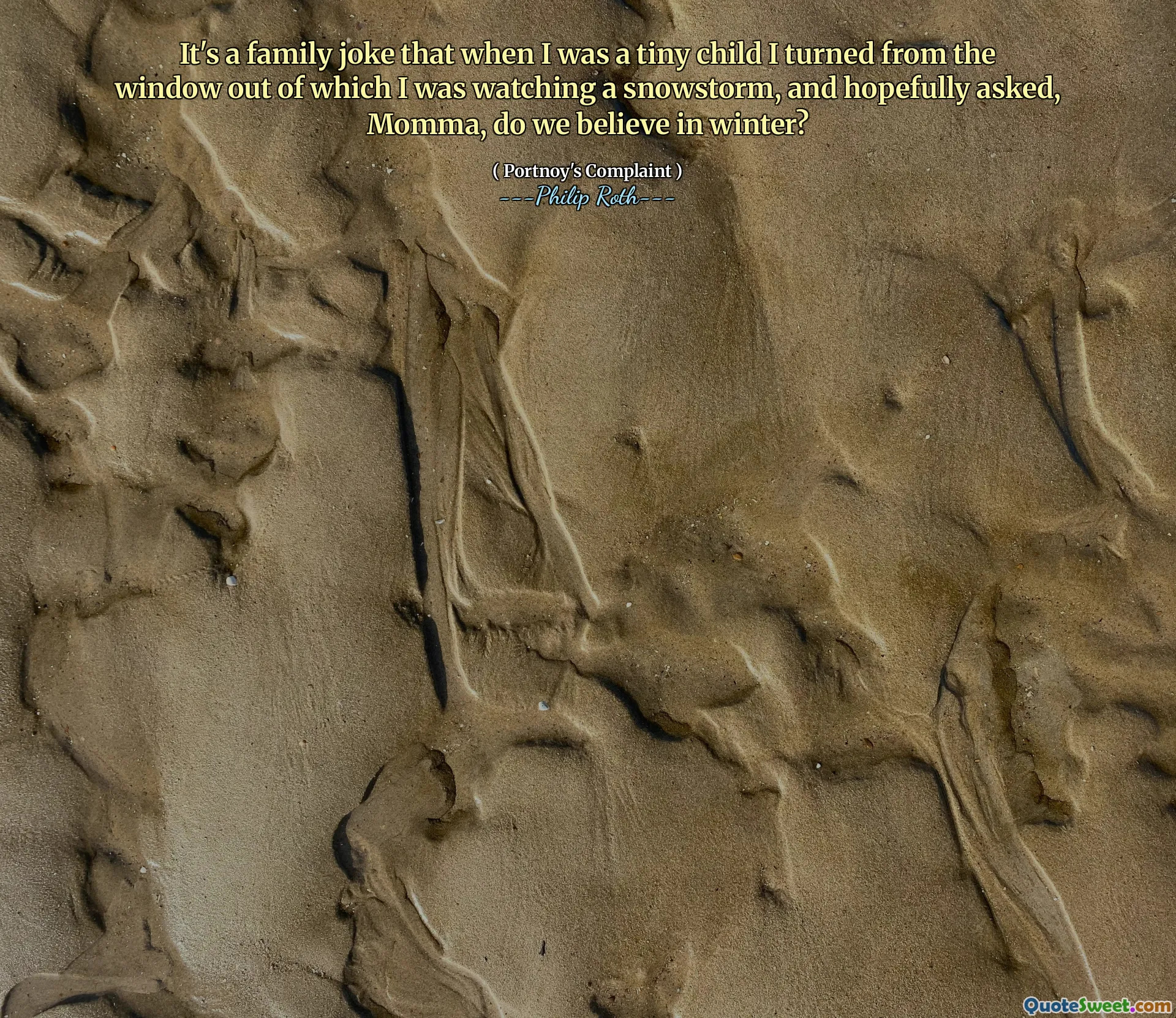
It's a family joke that when I was a tiny child I turned from the window out of which I was watching a snowstorm, and hopefully asked, Momma, do we believe in winter?
This quote encapsulates a whimsical and poignant moment of childhood innocence and imagination. The child's question — "Momma, do we believe in winter?" — captures a blend of literal observation and a more profound, almost philosophical inquiry that children often pose when trying to make sense of the world. The phrase "do we believe in winter?" anthropomorphizes or mythologizes the season, hinting at a child's attempt to comprehend the unseen forces or the abstract realities that govern everyday life. It reflects on the ways children try to negotiate their understanding of nature and existence, blending fantasy with reality. Additionally, there is a tender familial warmth embedded in this memory, as it’s a family joke passed around, revealing how childhood moments shape family identity and storytelling. Furthermore, it subtly touches upon themes of belief and perception — how much of our experience of the world is shaped by faith or acceptance beyond empirical realities. The humor in referring to winter, an inevitable season, as something to “believe” in, mirrors the often-quirky ways children approach knowledge and certainty. This quote invites reflection on the innocence of childhood skepticism and the poetic mystery of everyday phenomena.






